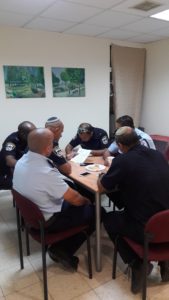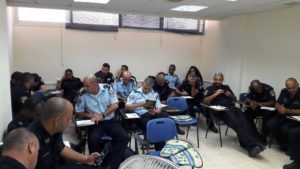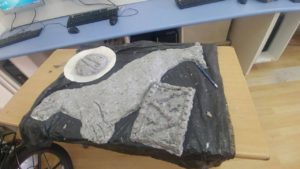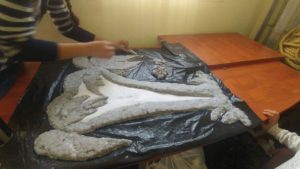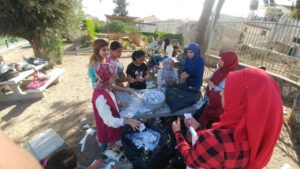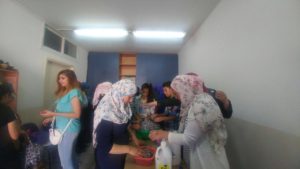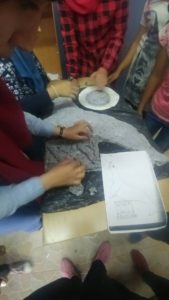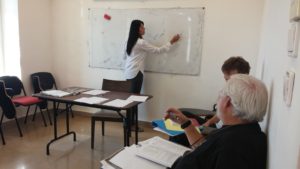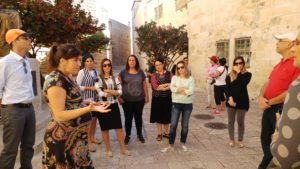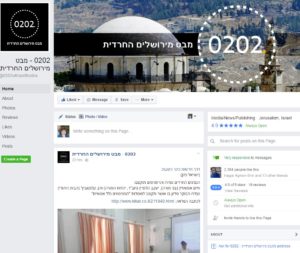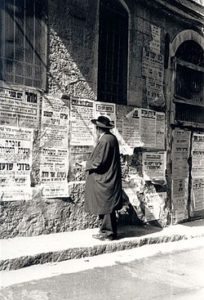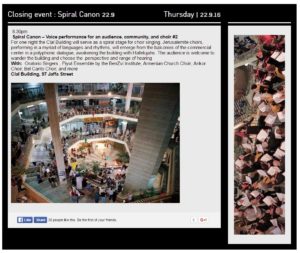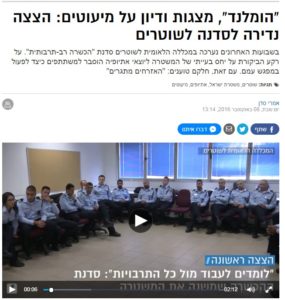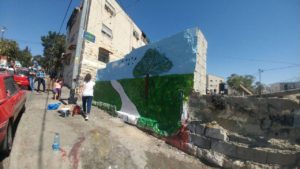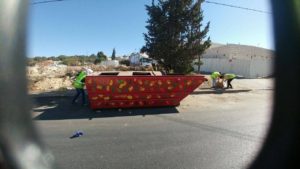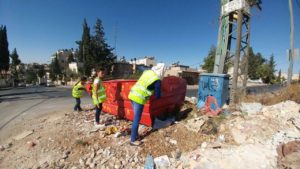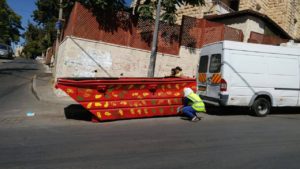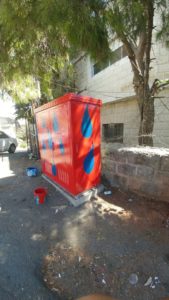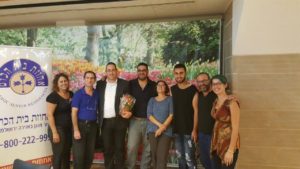System-wide Cultural Competency Training for Israel Police
It might just be our largest – and most wide-ranging – project in Cultural Competency to date. This September, we, together with Mosaica – The Center for Conflict Resolution by Agreement, were tasked – by the Police Force Education Unit, under directive from the Minister of Internal Security and the national Police Commissioner, (!) – with providing 200 cultural competency training workshops in five out of the seven police regions throughout Israel. When finished, the project will reach most of the tens of thousands of police officers and commanders throughout the country. This process began at the beginning of September and will run through December.
The directive is a direct result of our ongoing work with the police force and its Education Unit, which began last year. You can read about this previous work with the Israel Police Force, with both officers and trainees, at the National Police Academy and at different police stations, here and here. Indeed, the Israel police force realizes that having culturally competent and culturally sensitive officers can improve their professionalism and their ability to resolve incidents more quickly, more effectively, and hopefully, with less violence.
But this training marathon was on an entirely different scale. Our first step was to hold a 3-day ‘train the trainers’ workshop for the 30 professional facilitators, social workers, community mediators, and more. Their job has been to facilitate the training seminars in police stations throughout the country.
In our work we’ve found that there is already a massive amount of knowledge and awareness of cultural competence and sensitivity – both intuitive and learned – across the different layers, different branches and different locations of the police. One of the main goals of our work with the police is to utilize the knowledge and experience that already exists and teach it in a structured way so that it can become even more widespread, standard practice throughout the 35,000-strong police force.
Much of the 5-hour introductory training taught through case studies. Here is one, from northern Jerusalem:
During the Muslim month of Ramadan, border police noticed a marked increase in violent behavior by Palestinians going through the checkpoints. This was unusual, since Ramadan is a happy time, and even charged places such as a police checkpoint are usually affected (positively) by the month-long holiday. In response, officers from the border police held a meeting with local Muslim leaders, to try and get to the bottom of the problem. The leaders noted that this year, the border police were using police dogs as part of their routine checks, and that there was a special sensitivity to these dogs, especially since the people were hurrying to the Mosque. The border police stopped using the dogs, and the situation was much calmer at the checkpoints.
At other times, case studies are used to spark discussion:
A man of Ethiopian descent calls the police hotline, “Help! Someone left a sunny-side-up egg outside my door!” (This means he’s been threatened with murder.) What do you do? How do you respond?
An ultra-Orthodox woman calls the police hotline, complaining of domestic violence. The patrol that is closest includes a female officer, who is supposed to confront the ultra-Orthodox man. How should this be handled most effectively?
Each station focused on a particular population group, often one with which they have specific contact. Thus, for example, one station in the Jerusalem city center chose to focus on the Ultra-Orthodox Jewish population. Another, in northern Jerusalem, focused on the Palestinian population. (We’d worked with them before, and then they’d undergone a special workshop on the Ethiopian-Israeli population, since there is a large concentration there.) A station in Natanya focused on French-speakers.
In addition to the standard workshop content we also invited expert lecturers to provide a more in-depth understanding. For example, in Natanya the director of the Elem organization, himself a native French-speaker, was brought in to speak about the Francophone youth in the city, their approaches toward the police, and ideas of how to improve connections with the police in order to improve the public order.
We understand the challenge of integrating these principles into the everyday work of tens of thousands of police officers who face a myriad of complex situations every day. But we’re excited to be part of the process.

